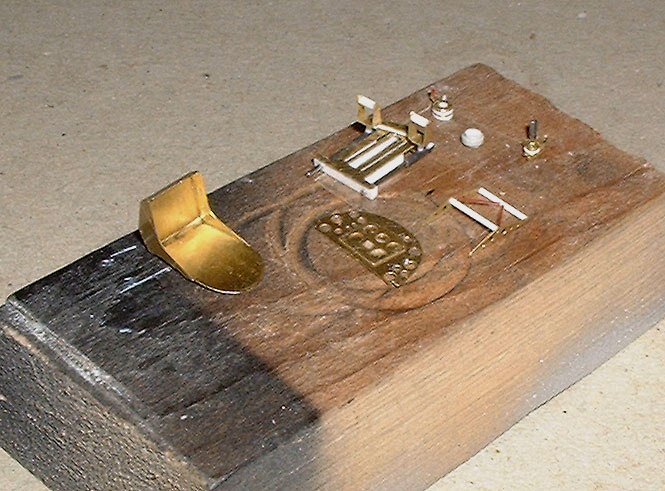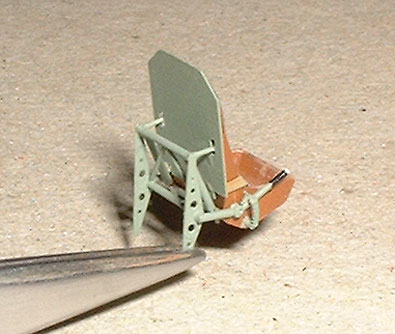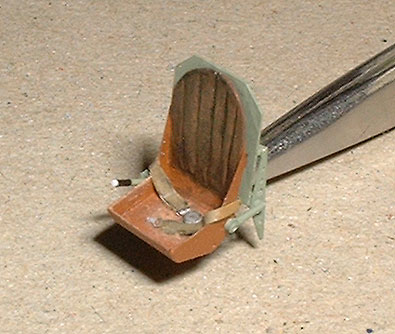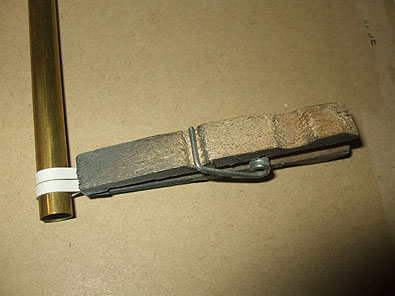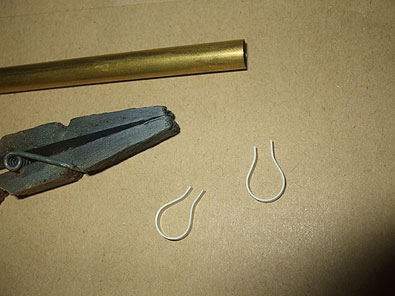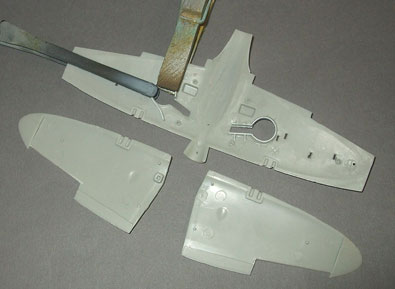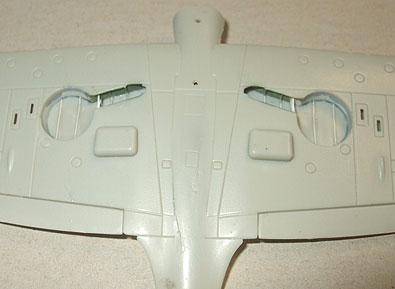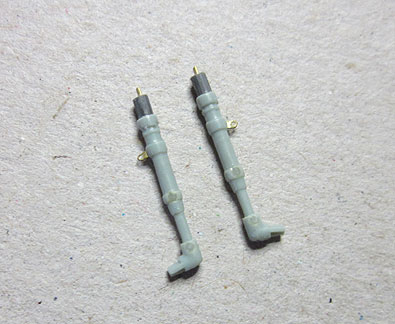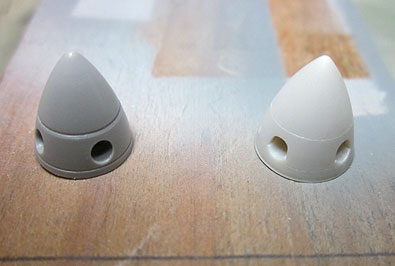| Airfix 1/72 Spitfire Mk IXc Construction |
| |
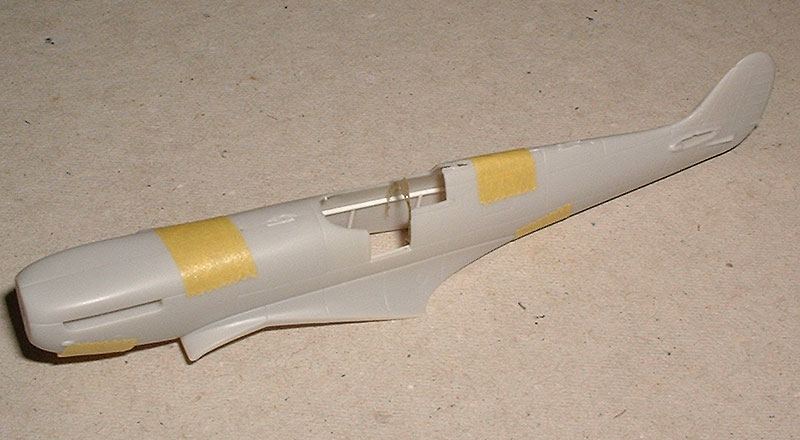 |
|
| Above and below:
Fuselage halves taped together to check the fit of the photo etched frames. |
| |
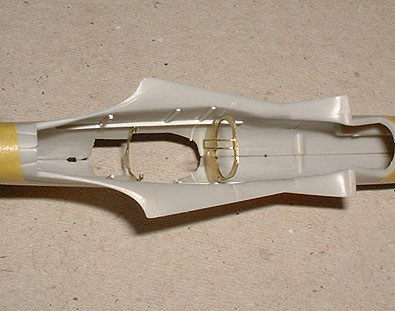 |
|
| |
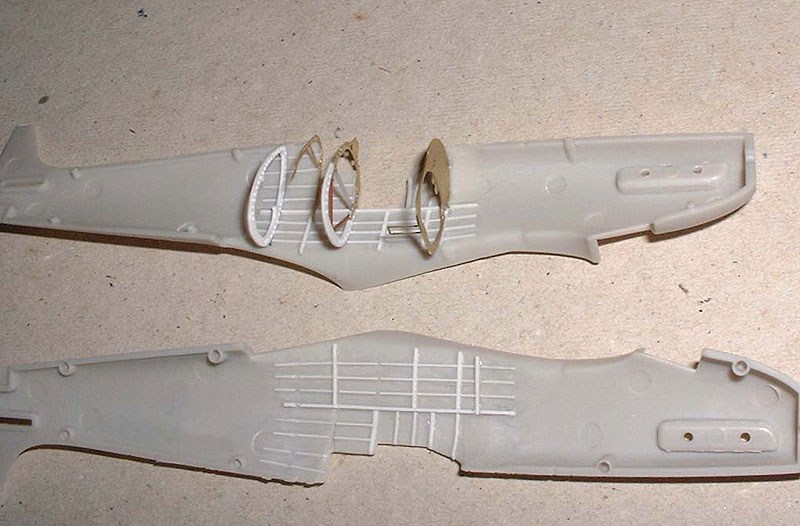 |
|
| Above: Basic
fuselage construction completed. |
| Below:
Photo etched parts embellished with plastic where necessary. Shown
are the landing gear / flap control, compass, throttle, seat frame,
instrument panel, seat, and heelboards with rudder pedals. |
|
|
Above left:
Completed seat with armour plate and frame from etched brass. Adjusting
lever and frame cross members are .015” plastic rod. Note the adjustment
ratchet from a quarter section of a watch gear.
Above right: Front view of
seat showing the cushion made from Mr. Dissolved Putty. |
| |
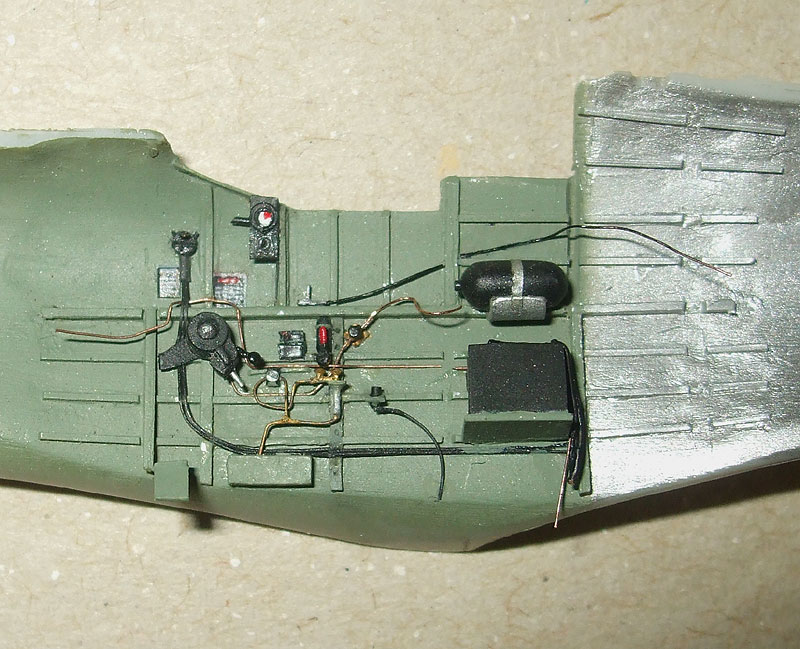 |
|
| Completed right fuselage half. |
| |
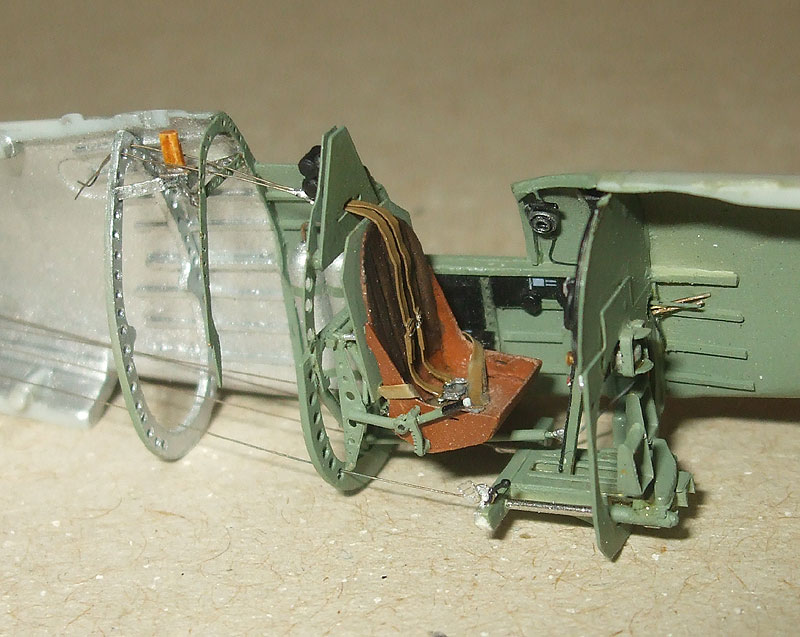 |
|
| Completed left fuselage half. Much of this detail was invisible
on the completed model but the fun was more in the creating than the final
effect! |
| |
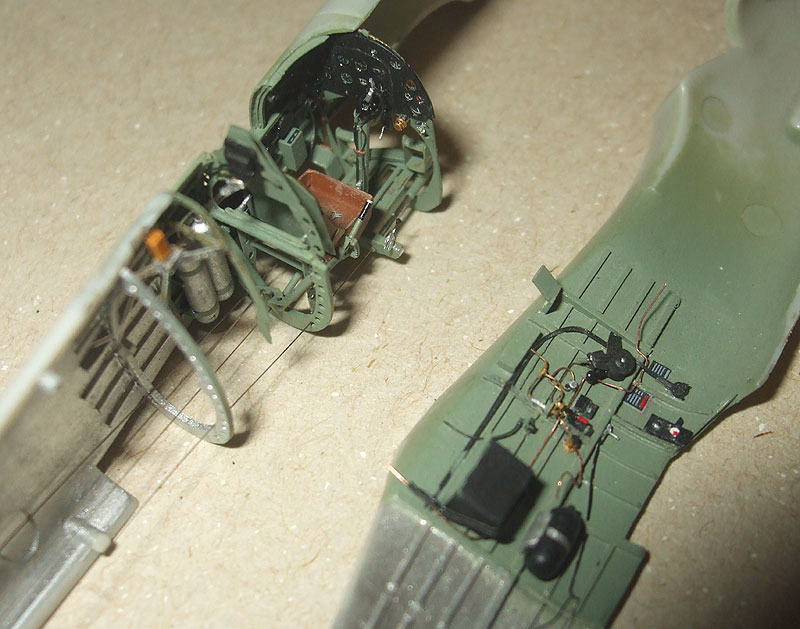 |
|
| Both fuselage halves ready for assembly. Constant test fitting during the build ensured there were no unpleasant surprises at this stage. |
| |
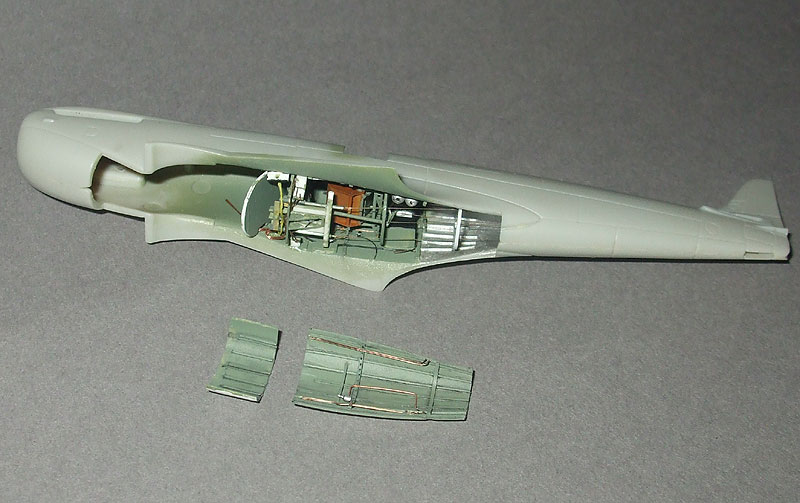 |
|
| Vac formed cockpit bottom detailed with plastic strip, rod
and copper wire. |
| |
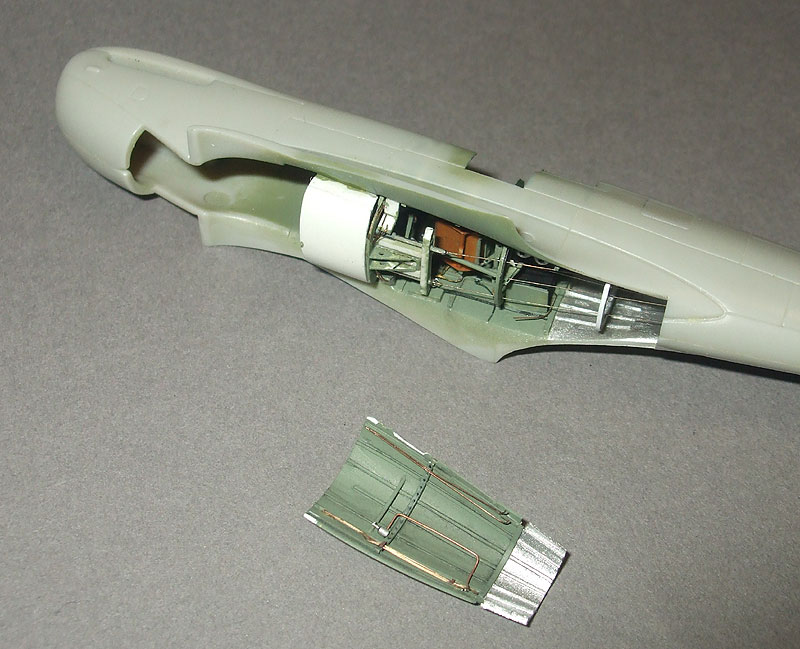 |
|
| The vac formed part wouldn’t fit over the forward photo
etched frame so the moulding was cut into two and glued on either side of
the frame. |
|
.020” sheet was clamped around a brass tube and immersed
in near boiling water for a few seconds to set the shape of the wheel well
sides. The formed plastic was much easier to glue to the wheel wells.
|
|
Above left:
Wheel well sidewalls held in place while the liquid poly cement works its
magic. Note the triangular braces on the finished port wheel well to stop
the sidewalls breaking off when they are sanded to fit the upper wing half.
Above right: Wheel wells finished
and wing halves assembled. Ribs are from .005” strip and sidewalls
blended in with Mr. Surfacer.
|
| |
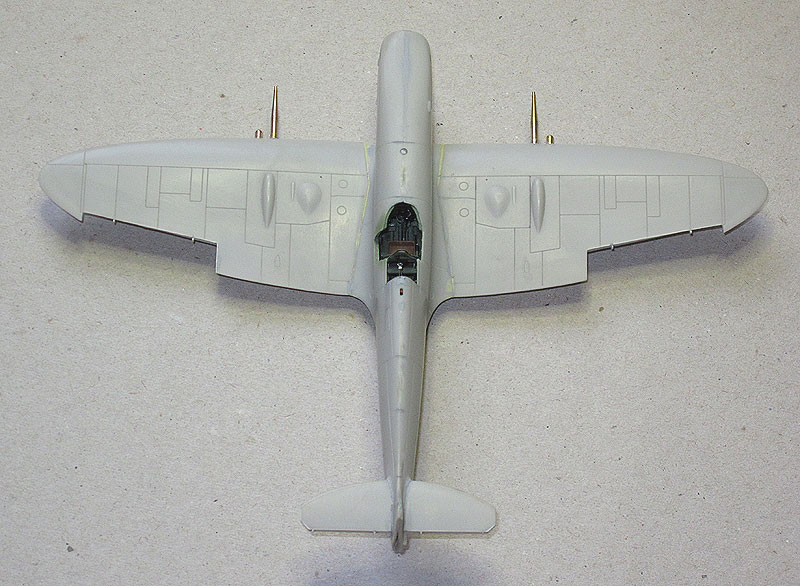 |
|
| Ready for paint. The superb turned brass cannons from Master
were a vast improvement on the kit items. |
| |
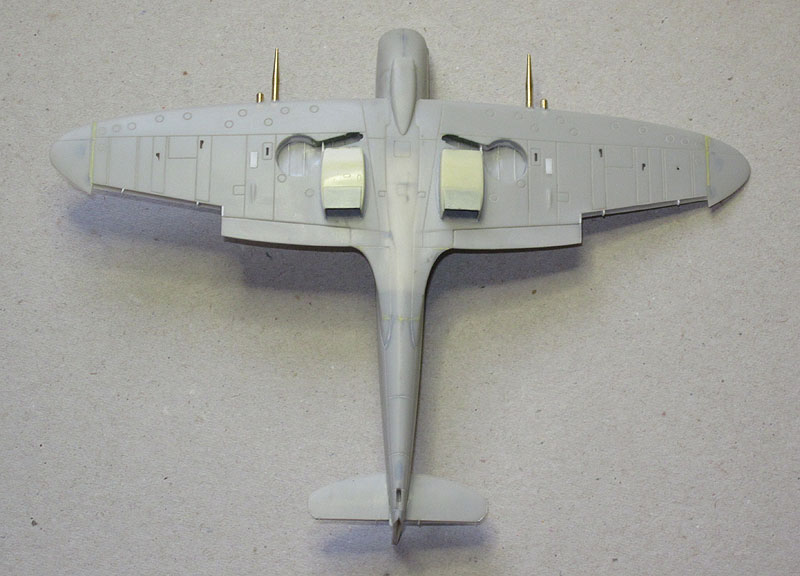 |
|
| The cast resin
radiators in place. Note the blanking plates over the outer cannon shell
ejection chutes, these were made from .005” sheet and sanded down
until they almost disappeared. Also note how the cockpit bottom shows clearly
through the thinned wing centre section. |
| |
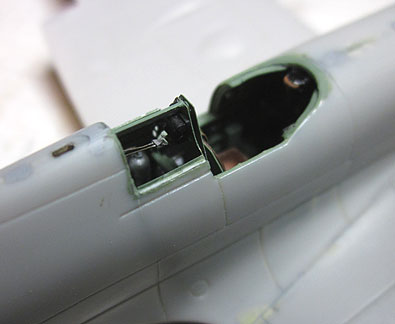 |
Left:
Strips of .005” sheet were glued to the inside of the rear canopy
sill to make fitting the thin vac form canopy easier. |
|
| |
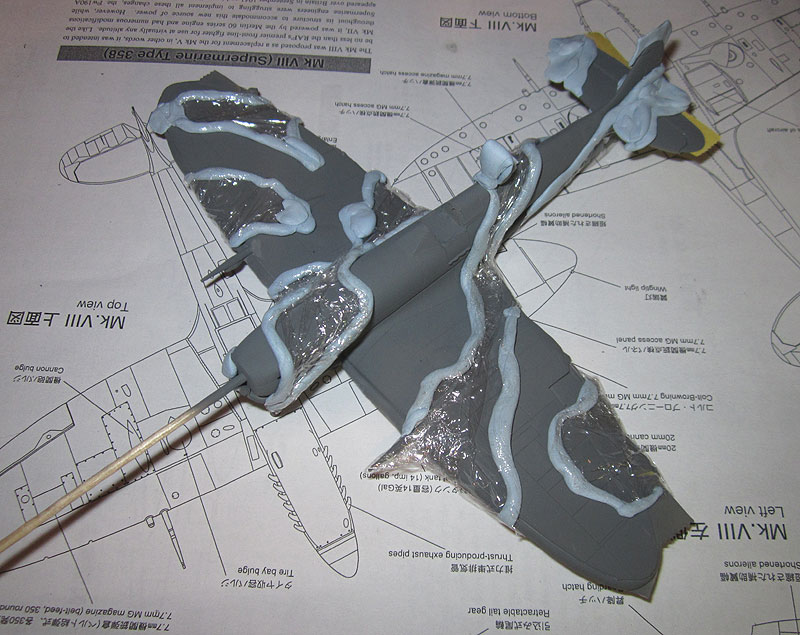 |
|
| Masking for the camouflage with blue tack. Cling film is used
to seal the areas that are to remain grey. |
| |
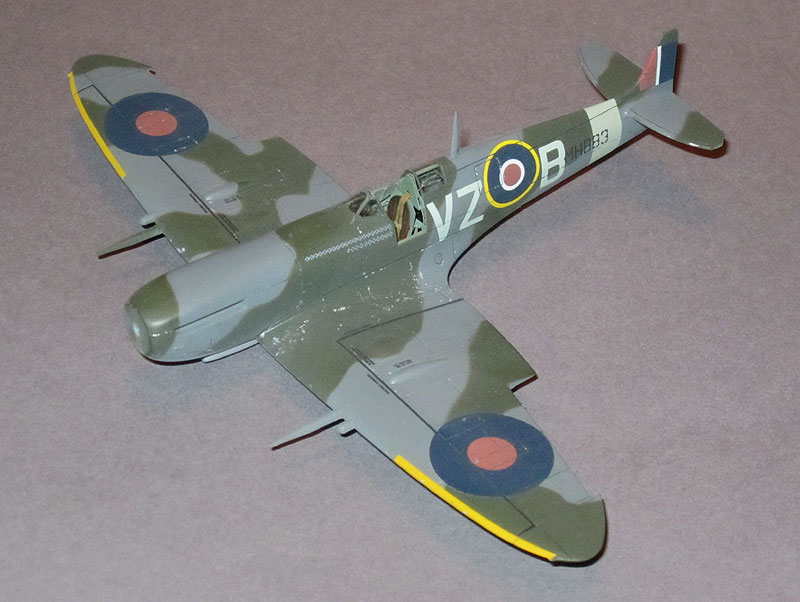 |
|
| Painted and decalled, ready for the final details. |
|
Above left:
Modified Academy Mk.XIV landing gear legs. Note the extensions from tubing,
brass rod locating pins and etched uplock rings.
Above right: Quickboost and
Airfix spinners. The grossly oversized panel lines on the resin item ruined
an otherwise excellent casting. |
| |
|
|
 Back to Spitfire Mk IX Main Page Back to Spitfire Mk IX Main Page |
| |



